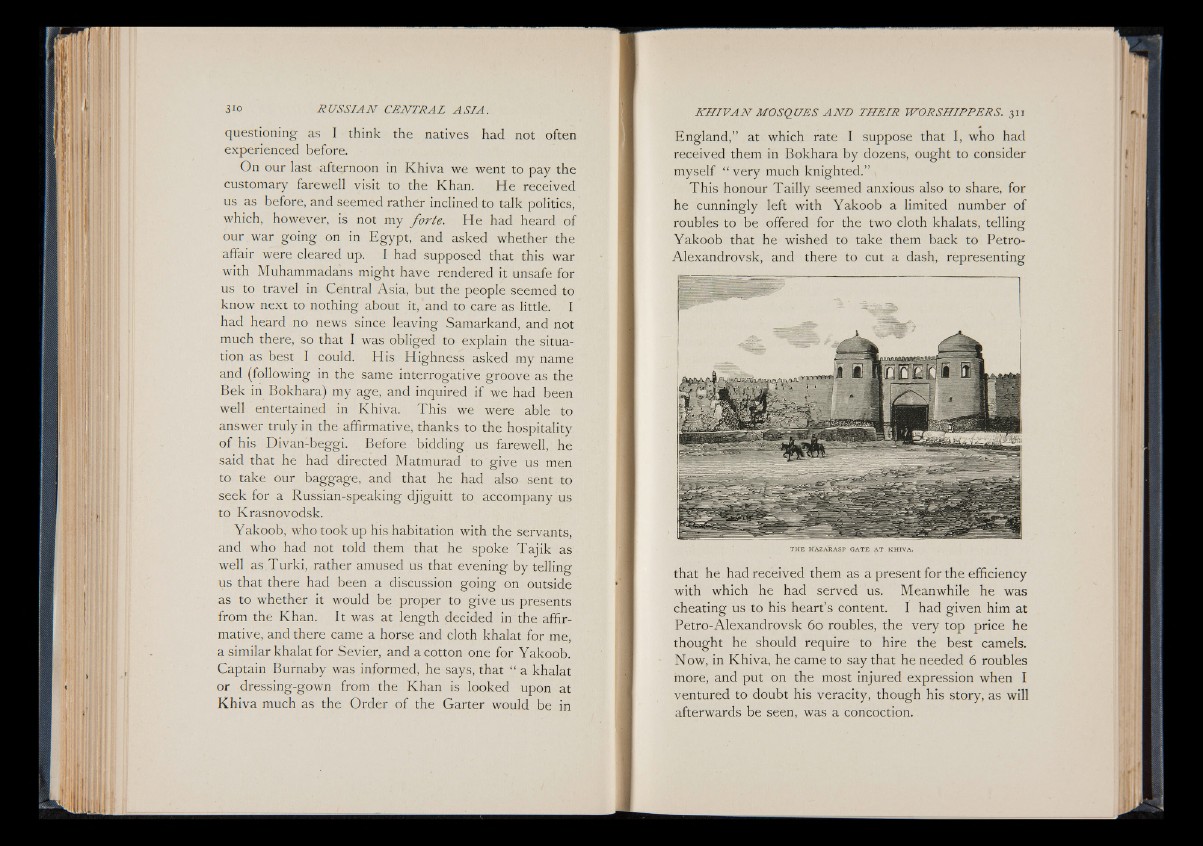
questioning as I think the natives had not often
experienced before.
On our last afternoon in Khiva we went to pay the
customary farewell visit to the Khan. He received
us as before, and seemed rather inclined to talk politics,
which, however, is not my forte. He had heard of
our war going on in Egypt, and asked whether the
affair were cleared up. I had supposed that this war
with Muhammadans might have rendered it unsafe for
us to travel in Central Asia, but the people seemed to
know next to nothing about it, and to care as little. I
had heard no news since leaving Samarkand, and not
much there, so that I was obliged to explain the situation
as best I could. His Highness asked my name
and (following in the same interrogative groove as the
Bek in Bokhara) my age, and inquired if we had been
well entertained in Khiva. This we were able to
answer truly in the affirmative, thanks to the hospitality
of his Divan-beggi. Before bidding us farewell, he
said that he had directed Matmurad to give us men
to take our baggage, and that he had also sent to
seek for a Russian-speaking djiguitt to accompany us
to Krasnovodsk.
Yakoob, who took up his habitation with the servants,
and who had not told them that he spoke Tajik as
well as Turki, rather amused us that evening by telling
us that there had been a discussion going on outside
as to whether it would be proper to give us presents
from the Khan. It was at length decided in the affirmative,
and there came a horse and cloth khalat for me,
a similar khalat for Sevier, and a cotton one for Yakoob.
Captain Burnaby was informed, he says, that “ a khalat
or dressing-gown from the Khan is looked upon at
Khiva much as the Order of the Garter would be in
England,” at which rate I suppose that I, who had
received them in Bokhara by dozens, ought to consider
myself “ very much knighted.”
This honour Tailly seemed anxious also to share, for
he cunningly left with Yakoob a limited number of
roubles to be offered for the two cloth khalats, telling
Yakoob that he wished to take them back to Petro-
Alexandrovsk, and there to cut a dash, representing
TH E HAZARASP G A T E A T KH IVA.
that he had received them as a present for the efficiency
with which he had served us. Meanwhile he was
cheating us to his heart’s content. I had given him at
Petro-Alexandrovsk 60 roubles, the very top price he
thought he should require to hire the best camels.
Now, in Khiva, he came to say that he needed 6 roubles
more, and put on the most injured expression when I
ventured to doubt his veracity, though his story, as will
afterwards be seen, was a concoction.